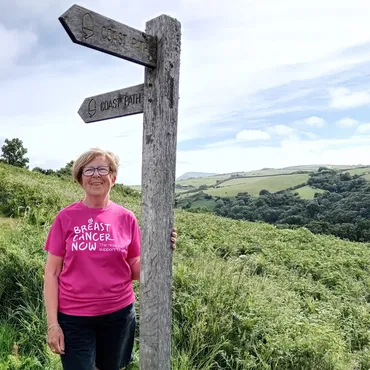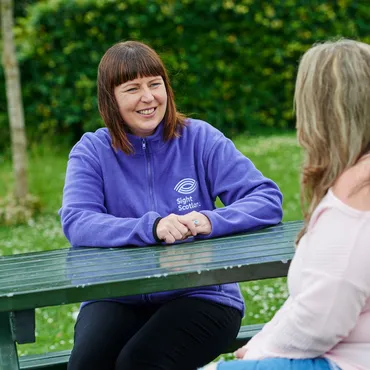SEO and PPC strategy delivers 130% uplift in donations for MND Association
An integrated SEO and PPC campaign significantly boosts donations, proving the effectiveness of harmonising search optimisation and targeted advertising to elevate both visibility and income.

MND Association

The outcomes
- 795% Increase in conversions Paid search conversions up by 795% with a 63% increase in clicks
- 82% Increase in clicks 82% more clicks and 126% more impressions in Google organic search
- 150 New keywords The website is now ranking for 150 new keywords in the top 3 positions in Google
The approach
Five ways we’ve used a collaborative approach to drive awareness and donations
1. Using Google Ads to increase visibility where organic rankings are low
The MND Association website has a wealth of useful information about motor neurone disease, support for people affected by the disease, and ways to fundraise for research into cures and treatments.
Their rich content was meeting their existing audience's needs. But, our multi-channel keyword analysis found that the site wasn't ranking for some core topics. The short term solution was to use search ads to fill these gaps – so that MNDA appeared for as many related searches as possible.
Using insights from this keyword research, we began by rebuilding their Google Ad Grants account. As part of this process we also identified a number of key terms that were important to MNDA but were too competitive to promote in the Google Ad Grants account due to the programme's limitations. As a result, we also utilised MNDA’s paid-for Google Ads account to ensure we were capturing traffic for all core terms where organic ranking was low.
Our rebuilt Google Ad Grants account and paid activity significantly increased the website's visibility in search results.

MND Clicks and impressions
2. Optimising pages and suggesting new content
Next, we used this data to find areas of low-performing content and gaps in content for popular searches that the MND Association’s audience were searching for. This data-led approach helped make the case for content amendments to existing pages, and suggestions for new content.

Keywords
Google Ads data showed us where Google saw a mismatch between a user’s search query, the ad and the page content (indicated with a low quality score). This highlighted areas where improving content relevance would lead to better ad positions and lower CPC for paid search, and improving rankings in organic search.
As well as comparing PPC & SEO metrics, we compared their content offering and rankings to competitors'. We discovered new areas of content that would help them increase their visibility in search. For instance, we worked with the content team to amend their “Have I got MND” page to become “Early signs of MND”, which now ranks #2 for queries around “early” and “first” signs and symptoms of the disease. Through working together, we can help them to rank highly for popular searches.
3. Using organic keyword data (GSC) as a shortcut to finding PPC keywords
We used Google Search Console (GSC) as one of our primary tools to find PPC keywords. GSC reveals how users are searching for a page in organic search, and using this information along with other search tools gives us a headstart for finding keywords.
GSC also shows where a page isn't appearing organically for a query (e.g. where there are high impressions, low clicks and low ranking position), and where PPC could be instrumental in closing the gap.
Shortly after re-launching MND Association’s Grants account, we created ads to respond to news coverage of Rob Burrow on BBC Breakfast. Using GSC we were able to target a broad range of queries around Rob Burrow, quickly on the same day. The ads generated almost £5,000 in the first two weeks, and using GSC to adapt to new keyword opportunities, the ads generated £34,000 in revenue over the next 3 months.
4. Using the Ad Grants account to test keywords for free before using Paid budget
We used MNDA's Ad Grants account to test keywords and landing page experience with their branded terms, where there is likely to be a warmer audience. By testing ad copy in their Grants account, we could take the learnings in order to confidently use their branded terms before moving ads into the paid account. For instance, we tested advertising a donate ask, their Cure Finders campaign and a Christmas appeal to measure which campaign resonated best with their warmer audiences.
It's also useful for SEO – we have been testing ad copy and messaging, before rolling out changes to content or meta elements on the site.
5. Search strategies for new campaigns and products
Working side-by-side and sharing learnings across SEO and PPC helps us plan for awareness days, campaigns and events – and gives us the best chance of getting great results. For instance, ahead of Global MND Awareness Day, we recommended creating a dedicated, permanent landing page for this event and supported with designing content to bring more users to the site through search.
To do this, we identified keyword gaps, made content recommendations and tested ads in their Grants account. This led to MNDA getting the featured snippet on Google and ads generated 96% of the search impression share for MND Awareness Day keywords.

The data we collected also helped launch the new MND Matters podcast, using our keyword research to shape podcast content and ads. We also worked together on a guide to 'Podcast SEO & Ads', advising on SEO for podcast search engines and advertising strategies.
The results
Working together across SEO & Paid Search has seen bolstered results in both areas.
- After using the joint keyword research to restructure the Grants account, MNDA initially saw a 358% increase in revenue. We are also spending more of their available Google Ad Grants budget – spending 62% more of their allocated budget since we took over the account.
- Content changes, technical improvements, and conversion rate optimisation recommendations improved performance for PPC & SEO highlighted in the most recent results over the last year:
- Paid search drove a 63% increase in clicks and a 795% increase in conversions, compared to the previous year.
- Better use of Grants and PPC has resulted in almost £90K of additional revenue, with 15% less media spend
- Paid social has also generated an additional £18K of revenue
- SEO performance has improved steadily over the past 12 months. In one year there's been a 126% increase in impressions and an 82% increase in clicks in Google organic search – and a £210K increase in revenue.
- The website is now ranking for 150 new keywords in the top 3 positions in Google.
- The site has seen increased visibility for condition-related keywords that were previously lost to health sites like the NHS website. This includes higher rankings for “signs and symptoms” keywords (now ranking in position #5 on average, up from #9), and answers to important questions around prognosis and life expectancy.
Conclusion
PPC and SEO projects work hand-in-hand
We love running PPC & SEO projects together because there are so many benefits to running both hand-in-hand:
- Working together means we can use our clients’ budget more wisely, for instance by performing one set of keyword research for both paid and organic search.
- Two sets of insights are better than one. Cross-referencing ideas makes it easy to spot areas of improvement.
- SEO, Paid Search, and Ad Grants accounts work in harmony and complement each other. PPC is used to fill the gaps – where the site does not (yet) appear in organic search – rather than “cannibalising” organic traffic.
Every charity should review their paid and organic search performance together, to create an integrated strategy for Search.
We recently ran a webinar on SEO & PPC: De-siloing the channels to work better for your organisation’.
Let's chat



